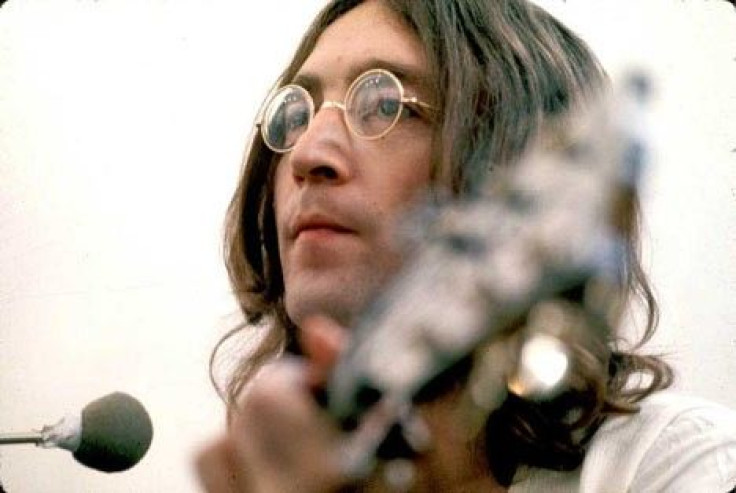John Lennon: Right-Wing Reagan Republican?

Former Beatle John Lennon, one of the greatest icons of the 1960s peace movement, became a right-wing Republican and big fan of Ronald Reagan during the final years of his life, according to a man who worked as an assistant for Lennon and his wife Yoko Ono.
The Toronto Sun reports that Fred Seaman, who worked for the Lennons in New York from 1979 through the end of 1980, said Lennon was ashamed of his left-wing radical past and eventually became fond of arguing politics with radicals.
Lennon was killed by a deranged fan in early December 1980, just one month after Ronald Reagan was elected President.
In Beatle Stories, a documentary by filmmaker Seth Swirsky, Seaman says that Lennon was far from his public image.
John, basically, made it very clear that if he were an American he would vote for Reagan because he was really sour on [Democrat] Jimmy Carter,” Seaman reportedly said.
[John] met Reagan back, I think, in the 70s at some sporting event. Reagan was the guy who had ordered the National Guard, I believe, to go after the young [peace] demonstrators in Berkeley, so I think that John maybe forgot about that. He did express support for Reagan, which shocked me.”
Seaman added: I also saw John embark in some really brutal arguments with my uncle, who's an old-time Communist. He enjoyed really provoking my uncle. Maybe he was being provocative, but it was pretty obvious to me he had moved away from his earlier radicalism. He was a very different person back in 1979 and 80 than he'd been when he wrote Imagine. By 1979 he looked back on that guy and was embarrassed by that guy's naivete.
Lennon’s true persona versus his public media-created image has long been at odds, even when he was alive. He seemed to have a habit of adopting a particular cause or movement, and then quickly abandoning it shortly thereafter.
For example, he went from being a spiritual Hindu to a Marxist atheist, and then back again.
While he was alive, Lennon suggested that much of his political activism in the late 1960s and early 1970s stemmed from the guilt he felt by becoming so wealthy and successful.
© Copyright IBTimes 2024. All rights reserved.











